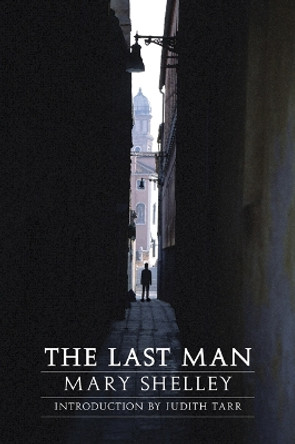Description
The Last Man (1826) is a dystopian novel by Mary Shelley. Dedicated to the recently deceased Percy Bysshe Shelley and Lord Byron, The Last Man was controversial upon publication and was immediately suppressed by British authorities. Resurrected by dedicated critics and readers, the novel is now recognized as a pioneering work of science fiction and as the first work of dystopian literature to be published in English.
The ambitious and semi-autobiographical work is set toward the end of the 21st century and follows a group of radical friends whose experiences during a period of political upheaval test the limits of their love and push them to the brink of survival. After the abdication of the British monarchy, the former prince Adrian befriends Lionel, a fiercely independent and philosophical advocate of republicanism. When Lionel returns from two years abroad in Vienna, where he was conducting political business, he finds that Adrian has disappeared following a conflict with Lord Raymond, who falls in love with the Greek princess Evadne while scheming to be named England's new king. They eventually resolve their enmity, however, and Raymond travels to Greece with Adrian to fight in a quickly expanding conflict with the Ottomans. As the war rages on, a plague breaks out and spreads without warning across Europe and overseas to the Americas. As the continent is ravaged by conflict and disease, Lionel and his group of friends struggle to keep one another alive in a world growing more hostile and less habitable by the day.
With a beautifully designed cover and professionally typeset manuscript, this edition of Mary Shelley's The Last Man is a classic of English literature reimagined for modern readers.
About the Author
Mary Shelley (1797-1851) was an English novelist. Born the daughter of William Godwin, a novelist and anarchist philosopher, and Mary Wollstonecraft, a political philosopher and pioneering feminist, Shelley was raised and educated by Godwin following the death of Wollstonecraft shortly after her birth. In 1814, she began her relationship with Romantic poet Percy Bysshe Shelley, whom she would later marry following the death of his first wife, Harriet. In 1816, the Shelleys, joined by Mary's stepsister Claire Clairmont, physician and writer John William Polidori, and poet Lord Byron, vacationed at the Villa Diodati near Geneva, Switzerland. They spent the unusually rainy summer writing and sharing stories and poems, and the event is now seen as a landmark moment in Romanticism. During their stay, Shelley composed her novel Frankenstein (1818), Byron continued his work on Childe Harold's Pilgrimage (1812-1818), and Polidori wrote "The Vampyre" (1819), now recognized as the first modern vampire story to be published in English. In 1818, the Shelleys traveled to Italy, where their two young children died and Mary gave birth to Percy Florence Shelley, the only one of her children to survive into adulthood. Following Percy Bysshe Shelley's drowning death in 1822, Mary returned to England to raise her son and establish herself as a professional writer. Over the next several decades, she wrote the historical novel Valperga (1923), the dystopian novel The Last Man (1826), and numerous other works of fiction and nonfiction. Recognized as one of the core figures of English Romanticism, Shelley is remembered as a woman whose tragic life and determined individualism enabled her to produce essential works of literature which continue to inform, shape, and inspire the horror and science fiction genres to this day.
Book Information
ISBN 9781513206684
Author Mary Shelley
Format Hardback
Page Count 414
Imprint Graphic Arts Books
Publisher Graphic Arts Books










